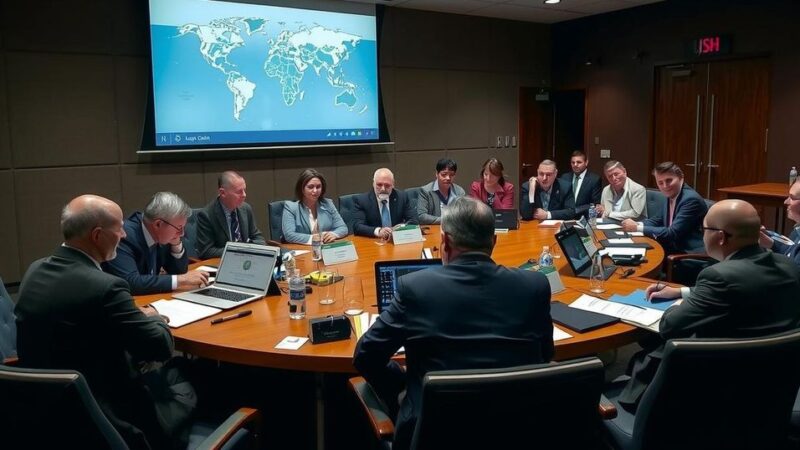India and China have announced a significant agreement regarding patrolling arrangements and the resolution of their military standoff along the Line of Actual Control (LAC), extending beyond previously disengaged areas. This development comes just before the BRICS summit, suggesting potential high-level discussions between Prime Minister Modi and President Xi Jinping. Foreign Secretary Vikram Misri and External Affairs Minister S. Jaishankar have emphasized the importance of this agreement for restoring peace and stability along the border.
In a significant diplomatic development, India and China have reached an agreement regarding patrolling arrangements and the resolution of their military standoff along the Line of Actual Control (LAC), as announced on October 21, 2024. This agreement extends beyond previously disengaged areas and addresses unresolved regions, such as Demchok and Depsang. The announcement by Foreign Secretary Vikram Misri indicates that the tensions that had persisted since April 2020 are expected to ease. While specific details of the agreement were not disclosed, Misri noted that discussions between Indian and Chinese diplomats and military negotiators had been ongoing, leading to a resolution of the issues arising from the military standoff in 2020. The announcement coincides with Prime Minister Narendra Modi’s upcoming attendance at the BRICS summit, where a potential bilateral meeting with Chinese President Xi Jinping will be discussed. During a summit, External Affairs Minister S. Jaishankar affirmed, “We have gone back to where the situation was in 2020; so we can say that the disengagement process with China has been completed. To my knowledge, we have reached an understanding regarding patrolling.” He emphasized the significance of this understanding in maintaining peace along the border, which he believes is essential for the overall relationship between India and China moving forward. Misri highlighted the importance of the negotiations leading to this agreement, citing multiple diplomatic engagements between the two countries over the past several months. The timing of the announcement, just before the BRICS summit, suggests a strategic effort to facilitate discussions between the two leaders, especially given their limited interactions since the Galwan Valley clash in June 2020.
For several years, the India-China relationship has been strained due to military confrontations along their shared border, particularly since April 2020. The two nations have engaged in numerous rounds of talks and agreements aimed at disengagement and restoring stability along the LAC. The recent announcement marks a crucial step toward de-escalating this long-standing tension, signifying a potential reset in bilateral relations. As both countries are significant members of international forums like BRICS, the resolution of their military standoff is of considerable geopolitical interest. The outcome of this agreement may also influence future interactions at multilateral meetings, including the BRICS summit.
In summary, the agreement between India and China on patrolling arrangements along the LAC represents a pivotal moment in their ongoing diplomatic efforts to resolve military tensions that have lingered since 2020. Through patient negotiation, both nations have established a framework that seeks to restore peace and stability in the border regions. The anticipation surrounding potential bilateral meetings at the BRICS summit indicates a renewed willingness to engage in dialogue, which may further solidify this agreement’s impact on future relations.
Original Source: www.thehindu.com






